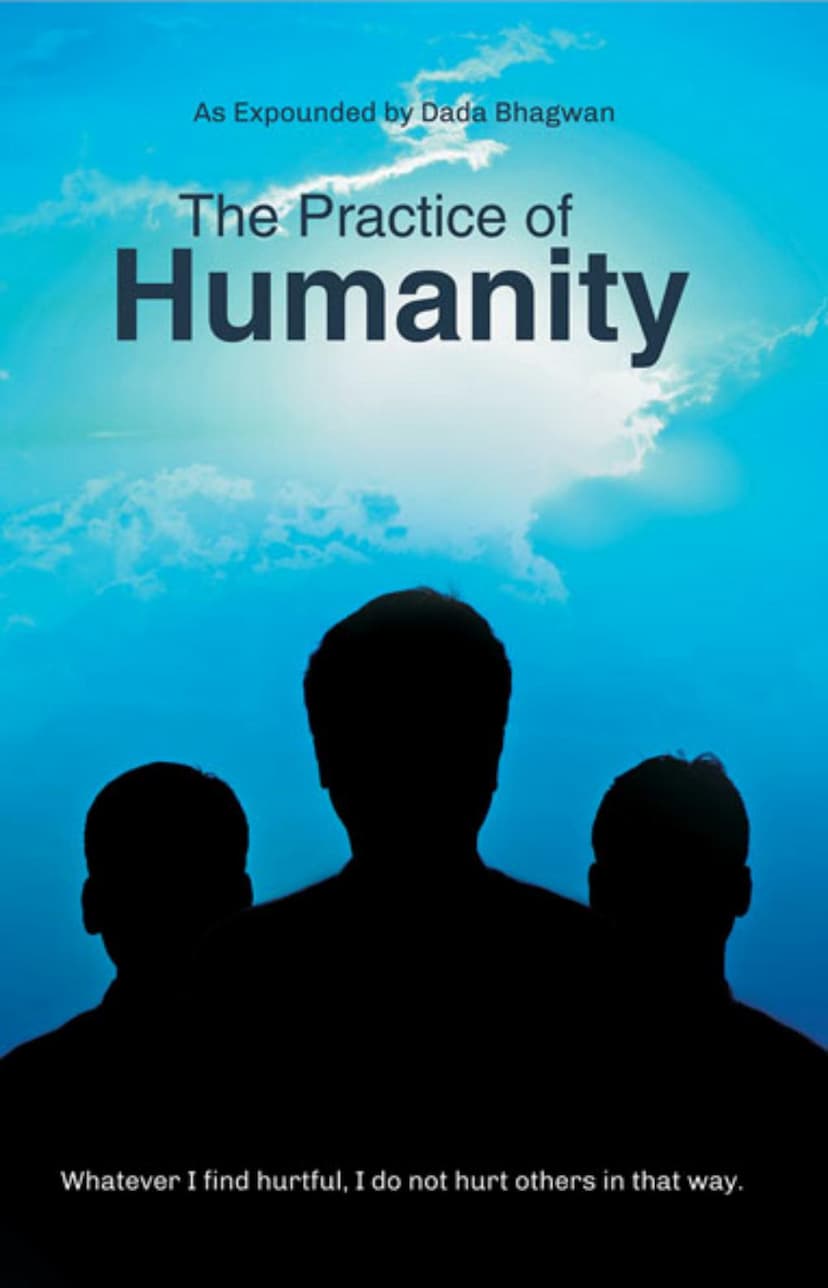The Practice Of Humanity
Added to library: September 2, 2025

Summary
Here's a comprehensive summary of "The Practice of Humanity" by Dada Bhagwan:
Core Message: The Golden Rule as the Foundation of Humanity
At its heart, "The Practice of Humanity" by Dada Bhagwan emphasizes the fundamental principle of treating others as you would wish to be treated. The core message is concisely stated: "Whatever I find hurtful, I do not hurt others in that way." This principle, when applied to all interactions, is presented as the essence of true humanity.
Purpose of Human Life:
Dada Bhagwan posits that the primary purpose of human life is to achieve a certain level of humanity. He suggests that scoring at least fifty percent in one's duty as a human being is crucial. A higher goal would involve scoring ninety percent. Without humanity, the purpose of human life is lost.
What Constitutes True Humanity:
The book clarifies that humanity is not simply about not observing castes or factions, nor is it about achieving peace (which is a result of practicing humanity). True humanity is defined by:
- Not being instrumental in hurting any living being: This extends beyond humans to all creatures, but the primary focus is on human interactions.
- Empathy and Consideration: The key to practicing humanity is constantly asking oneself, "If I were in that situation, how would I feel?" This applies to reprimanding an employee, finding lost money, being a guest, or even interacting with a subordinate.
- Reciprocity: "To give to others whatever you like, and to not give to others what you do not like." This means not slapping someone if you don't like being slapped, and not swearing at someone if you don't like being sworn at.
- Respecting Boundaries: Enjoying what rightfully belongs to you and not coveting what belongs to others is central to humanity. "What is mine is mine and what is yours is yours."
- Non-retaliation with negativity: If someone hurts you or swears at you, the practice of humanity is not to retaliate with the same negativity. Instead, one should strive to maintain equanimity and understand the situation without engaging in "beastly conduct."
Consequences of Not Practicing Humanity:
The text outlines a natural law governing the transmigration of souls based on actions:
- Human Life: Attained by those who predominantly practice humanity, maintaining pure worldly interactions, and avoiding taking what is not theirs.
- Animal Life: The consequence of enjoying what is not rightfully yours, engaging in greed, deceit, adulteration, or "beastly conduct" (like sexual intent towards others' family members).
- Celestial Realm (Dev Gati): Attained by those who go beyond humanity and act as "super-humans," dedicating their lives to obliging and helping others.
- Hell (Nark Gati): The result of demon-like conduct, causing meaningless destruction, burning down homes, or poisoning environments.
Levels and Types of Humanity:
Dada Bhagwan explains that humanity exists in various grades and forms depending on a person's level of spiritual development and cultural background.
- Individual Humanity: Each person's understanding and practice of humanity can differ based on their personal experiences and beliefs.
- Cultural Differences: The practice of humanity varies between cultures, with examples given of differences in attachment and emotional expression between Indians and Americans.
- Developed vs. Undeveloped Humanity: There is humanity in those who are spiritually developed (like saints and the Gnani Purush) and a more rudimentary form of humanity in those who are less developed or even those with negative traits (like a thief who might demand valuables, which is a perverted form of "humanity").
Practical Applications and Common Misconceptions:
The book addresses several practical scenarios:
- Finding Lost Money: Humanity dictates returning lost money after taking reasonable steps to find the owner, rather than keeping it or indiscriminately giving it away.
- Dealing with Subordinates: When correcting mistakes, the intention should not be to hurt. If unintentional hurt occurs, seeking forgiveness is advised.
- Social Service: While seemingly good, acts of social service that create dependency or "cripple" people by giving them free resources without helping them become productive are criticized. True service, according to Dada Bhagwan, is helping others find work and become self-reliant.
- Misguided Benevolence: Giving to those who misuse resources (like alcohol) or using pity as a basis for charity is seen as detrimental.
The Path to Liberation:
While practicing humanity is essential and leads to merit karma and favorable rebirths, it is not the ultimate goal. Humanity is considered a necessary stepping stone. True liberation (moksha) begins after one has established themselves within the bounds of humanity.
The Role of a Guru:
The text highlights the importance of a qualified guru in truly understanding and practicing humanity. Teachings need to be backed by "power of conduct" for them to be effectively integrated into one's life. Knowledge without correct understanding or practice is considered ignorance.
Call to Action:
The book encourages the dissemination of this knowledge, suggesting that books on the practice of humanity be taught in schools and colleges. This would help individuals cultivate the right understanding from a young age, leading to a more humane society.
In essence, "The Practice of Humanity" offers a clear, practical, and profound understanding of what it truly means to be human, emphasizing empathy, non-harming, and the natural consequences of our actions in shaping our destinies.